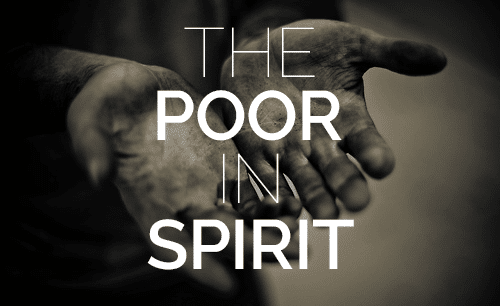Poor In Spirit
We discussed extensively about how Mark 2:17 relates to conversion, but is this statement by Christ only applicable to those who are unconverted? Not at all. Professing and even genuine Christians can get to a point where they are tempted to think they are spiritually well and have no more need of Christ’s healing work.
They get some victory over sin and see some fruit of their labors in other’s lives and begin to think: “I’m actually a pretty good person or at least better than those vile sinners I know or see on TV,” OR, “I’m more righteous in God’s eyes than someone who doesn’t discipline their kids like I do or read their bible or memorize Scripture or serve as much as I do,” OR, “Yeah, I’m still sinful, but I’m not like I used to be and I’m certainly better than some of my family and friends.”
Those things might be true, but why would that lead to boasting since those characteristics are only due to God’s gracious work in our lives? Here are a couple practices that will protect us from this boastful and destructive thinking and this is where we will close:
Recognizing our spiritual plight.
We already saw this principle from a text I read earlier: the first beatitude–being poor in Spirit. The NASB margin note reads–those who are not spiritually arrogant. Remember this is a desired characteristic of kingdom citizens, which means it is meant to be ongoing throughout our lives. Those who know they have nothing to offer God in themselves will not live in self-righteousness because those traits are direct opposites. This will lead to lives dependent on God. The next practice is…
Continually confessing our sins.
Part of the model prayer the Lord supplies in Matt. 6, contains the request from our heavenly Father to forgive our debts. Those who consistently confess specific sins to God and those they sinned against will be guarded from patterns of self-righteousness. There’s also an associated result of this consistent confession and that is that this leads us to be forgiving and gracious to others as seen in the second part of the verse–as we also have forgiven our debtors–and in Eph. 4:32, “Be kind to one another, tender-hearted, forgiving (or being gracious to) each other, just as God in Christ also has forgiven (or been gracious) you.” Seeing our need for forgiveness by continually confessing our sins will keep us from rejecting the grace of Christ.

